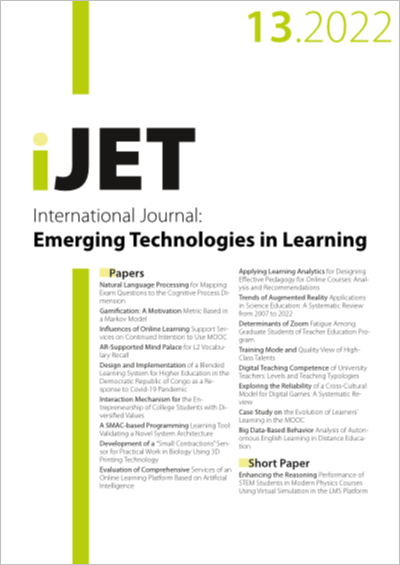Gamification: A Motivation Metric Based in a Markov Model
DOI:
https://doi.org/10.3991/ijet.v17i13.30781Keywords:
mobile learning, gamification, Markov model, higher educationAbstract
The current situation in the world with the COVID-19 pandemic has reinforced a pre-existing trend based on increasing the use of gamification tools in education to motivate students. In this work, a study based on a Markov model is proposed to assess motivation during the training process in higher education. The evolution of Faculty of Business Administration graduates when using a gamified smartphone application (HEgameApp) has been measured. The behavior of graduates is assessed through collaboration in fora created by HegameApp, and the recognition given by their classmates. A utility function is defined to obtain a statistical estimator used in the assignment of motivational states of the study participants. In addition, a decrement function is assigned to the value of the components of the utility function to estimate the time variation of motivation during the process of knowledge assimilation. The proposed solution shows that when graduates are involved in using the app, they significantly increase their academic outcomes and satisfaction while receiving the lectures. In addition, the positive feedback perceived through the application fora has a measurable effect on their motivation.
Downloads
Published
How to Cite
Issue
Section
License
Copyright (c) 2022 Dra. Lidia Aguiar-Castillo, Dr. Edgar Arce-Santana, Carlos Guerra-Yanez, Dr. Victor Guerra-Yanez, Dr. Rafael Perez-Jimenez

This work is licensed under a Creative Commons Attribution 4.0 International License.



